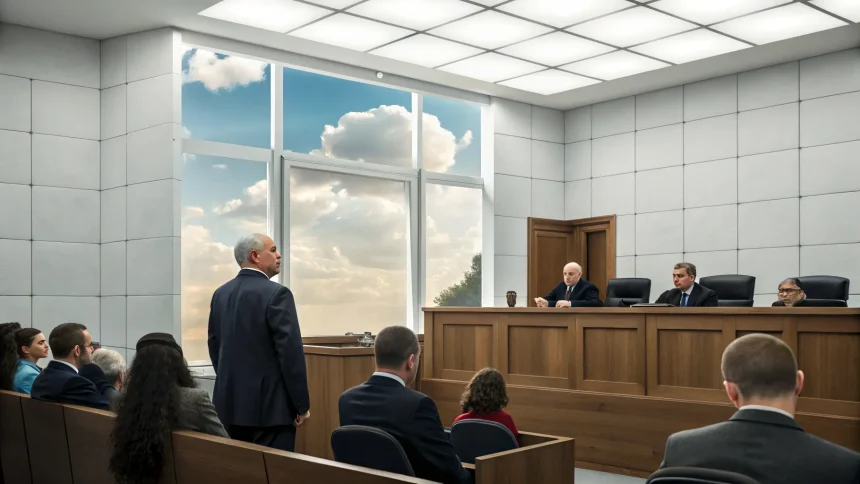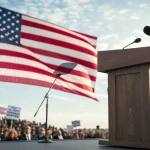Israel’s most powerful politician is fighting for his political life in a courtroom, and the case is shaking the country’s institutions. The trial of Prime Minister Benjamin Netanyahu on bribery, fraud, and breach of trust charges has become a national fault line, pulling in allies, opponents, and even voices from Washington.
At stake is more than one leader’s future. The case is now a contest over the reach of the courts, the limits of political power, and the rules that govern both. The debate has spilled into the streets, the cabinet, and foreign capitals.
The ongoing trial of Prime Minister Benjamin Netanyahu on bribery, fraud and breach of trust charges has altered national politics in Israel.
Legal stakes meet political survival
Netanyahu has denied wrongdoing and vowed to continue serving. Supporters argue the prosecution is politically driven. Critics counter that the courts must be allowed to do their job without pressure.
The charges include allegations of illicit gifts and attempts to secure favorable media coverage. Court proceedings are complex and slow, yet each hearing sends fresh shockwaves through the coalition and the opposition.
Analysts say the trial has become a proxy fight. One side claims the judiciary is overreaching. The other warns that political attacks on judges risk weakening the rule of law.
Washington weighs in, and the blowback
The case has even drawn comment from former U.S. President Donald Trump. He urged that the charges be dropped, igniting complaints in Israel about outside pressure.
It’s elicited calls by US President Donald Trump for the dismissal of the case, sparking concern over American interference.
Diplomats and security officials worry that public U.S. commentary could entangle bilateral ties in a domestic trial. Israel relies on U.S. support on defense, trade, and diplomacy. Even the perception of interference can have costs.
Netanyahu’s allies welcomed Trump’s remarks as validation of their claims of unfair treatment. Opponents said the comments crossed a line and could undermine trust in the court process.
A fight over the courts themselves
The trial has energized a long-running campaign on the right to curb the judiciary’s power. Critics of the courts say judges reflect a liberal elite out of step with voters. They argue that elected officials, not unelected jurists, should set policy.
And it’s bolstered a longstanding sentiment among those on the right in Israel that the courts, which they consider a bastion of the liberal elite, are using the law for political ends and need to be reined in.
Legal scholars counter that checks and balances protect minority rights and guard against corruption. They warn that changes motivated by one case could weaken safeguards for years.
- Backers of reforms say they seek clearer limits on judicial review.
- Opponents fear erosion of independence and public trust in verdicts.
Public opinion and the road ahead
Public sentiment is split and volatile. For some voters, the case confirms suspicions of bias. For others, it is a test of whether the same rules apply to everyone, including the prime minister.
The political consequences are immediate. Coalition partners must manage pressure from their base while keeping institutions functioning. The opposition seeks to tie the government’s agenda to the court fight.
Markets and investors watch for signs of policy instability, especially if tensions escalate. Civil society groups brace for more rallies and counter-rallies near court dates and government votes.
What to watch next
Key questions will guide the next phase:
- Will proposed legal changes advance while the trial continues?
- How will U.S. officials calibrate their words to avoid accusations of interference?
- Can the courts maintain public trust amid intense political attacks?
The outcome of the trial will shape more than one political career. It will set precedents for how Israel balances majority rule with independent oversight. It may also recalibrate relations with allies who value both stability and the rule of law.
For now, the country sits between court hearings and cabinet meetings, waiting for clarity. The verdict—legal and political—will echo for years. The next moves by lawmakers, judges, and foreign partners will signal whether this crisis narrows or widens.







